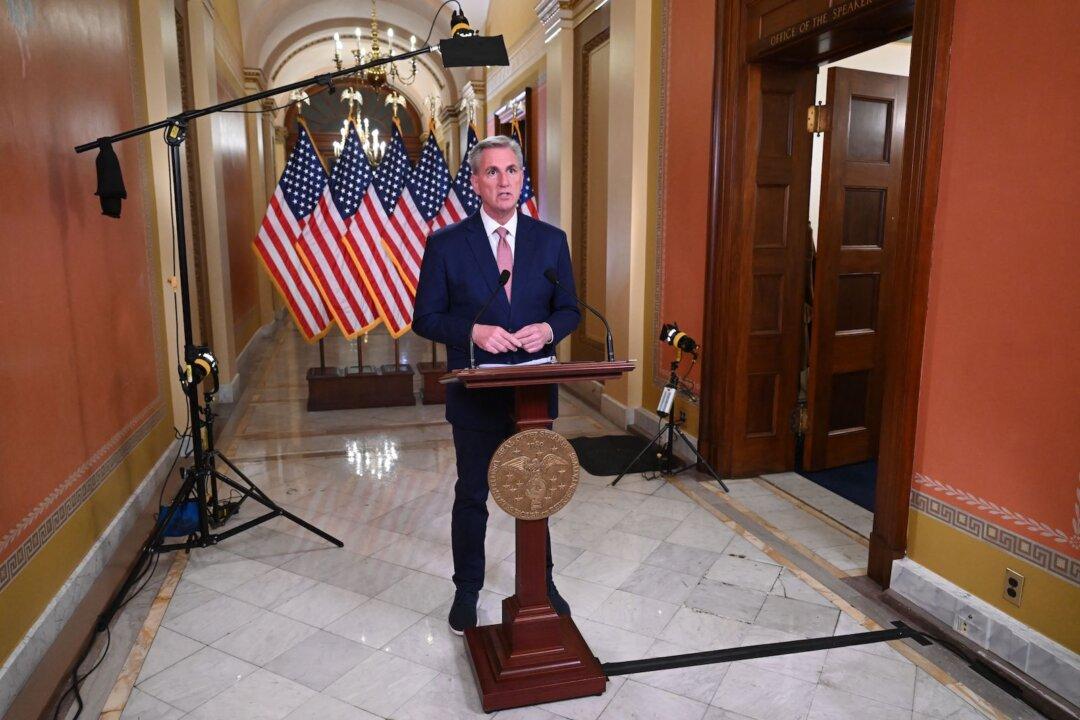House Speaker Kevin McCarthy (R-Calif.) on April 19 unveiled legislation to increase the nation’s debt ceiling by $1.5 trillion or until March 31, 2024, whichever comes first.
At the same time, the measure would return discretionary spending to 2022 levels, limit spending growth to 1 percent per year, take back unspent COVID-19 relief funds, repeal certain tax credits, reinstate work requirements for many people on public assistance, and remove barriers to increased production of domestic energy.





